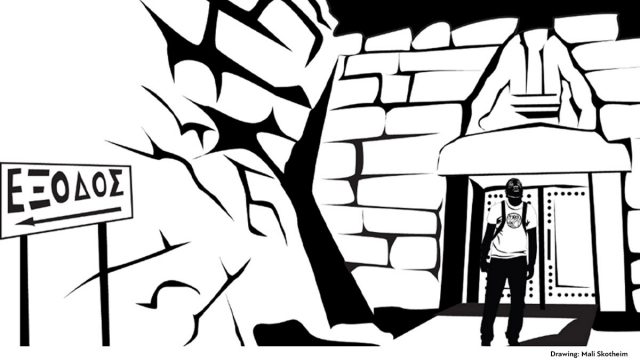date

seminar
Dan-El Padilla Peralta “Classicism and Other Phobias: Antiquity’s Emancipation”
While rebutting Karl Kautsky’s exaltation of the Roman general Quintus Fabius Cunctator’s “strategy of attrition”, Rosa Luxemburg quotes the historian Theodor Mommsen in order to correct the record and inveigh against the preaching of this “legend … at high school students in our schools to drill them in conservative spirits” (Theory and Practice: Postscript, 1910). “Rome was not saved by the ‘Procrastinator’,” Mommsen writes in his Roman History (1856, 3rd edition), “but by the firm union of the federation – and equally, perhaps, by the national hatred with which the occidental welcomed Phoenician Man.” This lecture will explore the dark underside of this and other racializing moments in the disciplinary imagination of ancient history, by situating the emergence of “classics” as a field of study in dialogue not only within the Orientalist constructs of 19th-century nation-state politics but within the broader arc of European race-making and settler-colonialism. I will argue for an approach to the study of Greco-Roman classics that locates it as one uniquely (and violently) overrepresented form of classicism, and that inquires whether such an overrepresented form is capable of accommodating the communities and knowledge-practices that it has historically so effectively Othered.
bio
Dan-el Padilla Peralta is Associate Professor of Classics at Princeton, where he is also associated with the Department of African American Studies and is affiliated with the Programs in Latino Studies and Latin American Studies and the University Center for Human Values. A Dominican by birth and New Yorker by upbringing, he holds degrees from Princeton (class of 2006; Latin Salutatorian and recipient of the Daniel M. Sachs Class of 1960 Graduating Scholarship), Oxford, and Stanford. He is the author of Undocumented: A Dominican Boy’s Odyssey from a Homeless Shelter to the Ivy League (Penguin 2015) and Divine Institutions: Religions and Community in the Middle Roman Republic (PUP 2020); and he has co-edited Rome, Empire of Plunder: The Dynamics of Cultural Appropriation (CUP 2017). His research interests revolve around Roman history, Latin literature, histories of slavery and citizenship, the ancient Mediterranean in the modern Caribbean, critical race theory, and Black Studies.
seminar video
seminar video
date
bio
Dan-el Padilla Peralta is Associate Professor of Classics at Princeton, where he is also associated with the Department of African American Studies and is affiliated with the Programs in Latino Studies and Latin American Studies and the University Center for Human Values. A Dominican by birth and New Yorker by upbringing, he holds degrees from Princeton (class of 2006; Latin Salutatorian and recipient of the Daniel M. Sachs Class of 1960 Graduating Scholarship), Oxford, and Stanford. He is the author of Undocumented: A Dominican Boy’s Odyssey from a Homeless Shelter to the Ivy League (Penguin 2015) and Divine Institutions: Religions and Community in the Middle Roman Republic (PUP 2020); and he has co-edited Rome, Empire of Plunder: The Dynamics of Cultural Appropriation (CUP 2017). His research interests revolve around Roman history, Latin literature, histories of slavery and citizenship, the ancient Mediterranean in the modern Caribbean, critical race theory, and Black Studies.
seminar video
seminar video

seminar
Dan-El Padilla Peralta “Classicism and Other Phobias: Antiquity’s Emancipation”
While rebutting Karl Kautsky’s exaltation of the Roman general Quintus Fabius Cunctator’s “strategy of attrition”, Rosa Luxemburg quotes the historian Theodor Mommsen in order to correct the record and inveigh against the preaching of this “legend … at high school students in our schools to drill them in conservative spirits” (Theory and Practice: Postscript, 1910). “Rome was not saved by the ‘Procrastinator’,” Mommsen writes in his Roman History (1856, 3rd edition), “but by the firm union of the federation – and equally, perhaps, by the national hatred with which the occidental welcomed Phoenician Man.” This lecture will explore the dark underside of this and other racializing moments in the disciplinary imagination of ancient history, by situating the emergence of “classics” as a field of study in dialogue not only within the Orientalist constructs of 19th-century nation-state politics but within the broader arc of European race-making and settler-colonialism. I will argue for an approach to the study of Greco-Roman classics that locates it as one uniquely (and violently) overrepresented form of classicism, and that inquires whether such an overrepresented form is capable of accommodating the communities and knowledge-practices that it has historically so effectively Othered.
